How do you publish and distribute comics during a pandemic? It seems like a Herculean task, to say the least. And yet, there are plenty of small press publishers out there doing just that, right now. One of these publishers is KILGORE BOOKS AND COMICS.
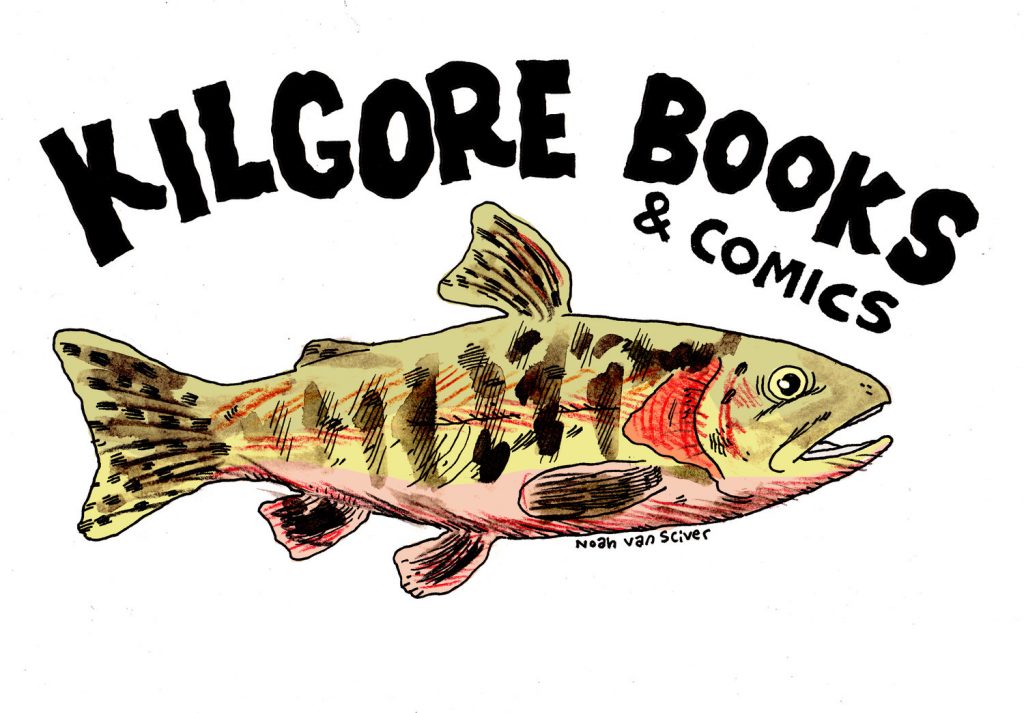
Originally based out of the Kilgore Book store in Denver, Colorado, Kilgore Books has been publishing comics since 2009. In 2015, Dan Stafford split the publishing arm from the book shop and is currently running Kilgore Books and Comics from its home base in College Park, MD.
You can find out more about Kilgore Books and Comics by visiting their website or by following them on Twitter or Instagram.
I thought I’d send Dan Stafford some questions about what publishing is like in these strange times, and he was kind enough to answer.

Out of all the things you could possibly be doing with your time, you all decided to publish comics. Why is that?
Because there’s a need for it!
When I opened the shop in Denver (Kilgore Books & Comics) with my pal Luke, we were partially working to fill a void, which is that no bookstores carried zines or indie comics. Some used shops would have a small shelf for “graphic novels” but you couldn’t go out and pick up an issue of Eightball or Optic Nerve anywhere, let alone a homemade zine or minicomic.
The week we opened up, Noah Van Sciver came in asking if we’d sell the first issue of Blammo and we were off to the races. As time went on, it made more sense for us to publish his comics. It kept his costs down, made sure he had plenty of copies to sell, and helped give him more time to focus on his work.
And that’s been our model ever since. We don’t strive to be a BIG indie publishing house, but rather serve as a bridge between self-publishing and larger publishers like Fantagraphics, D&Q, etc. etc.
On top of that, our world is becoming ever more digitized and we’re losing a lot of humanity simply in how items are made and distributed. It’s nice to be a part of something (relatively) analog and personal.
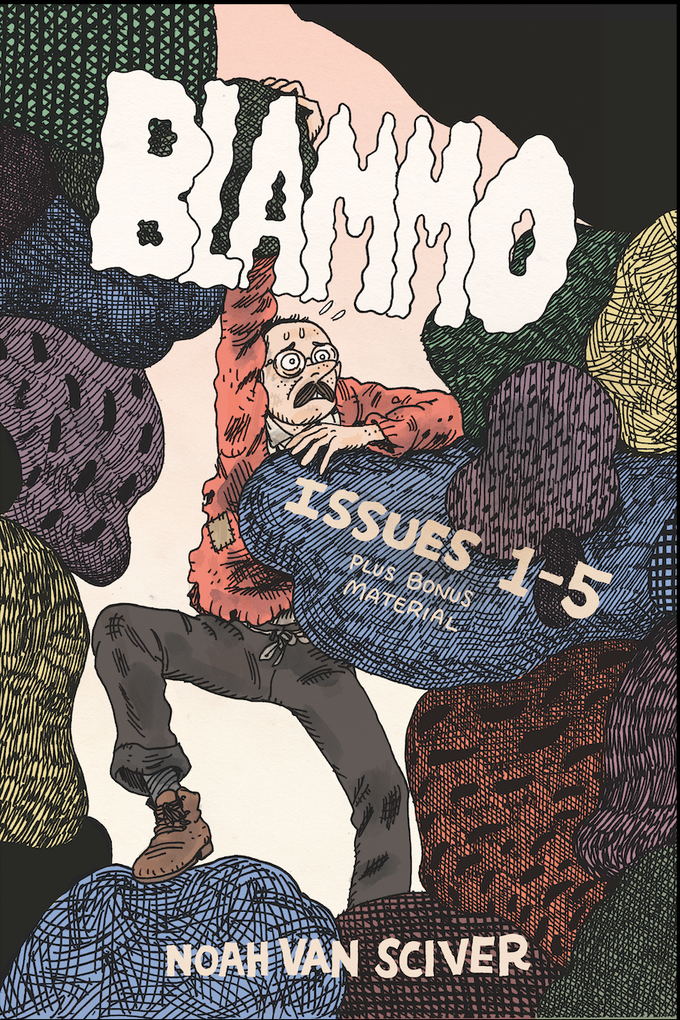
How has the world of comics publishing been impacted by the pandemic?
I think it sped up the natural progression of things. Since I got into publishing, in 2009, I’ve seen so many great indie houses come on the scene and then either fold up shop or effectively stop publishing. We have all been struggling with the same challenges for years, namely:
- Mainstream comic shops don’t want to sell indie/literary/humor stuff
- People who’d read stuff that Kilgore, et. al. publish aren’t necessarily going to comic shops or comic shows
- Book distros don’t want to distro floppy comics and/or have a minimum on books/year
- The convention circuit, while incredible in so many ways, is an unsustainable distribution model, economically
But, as a result of the pandemic, readers are getting more and more comfortable with Kickstarter, Patreon, and online ordering. I think it’s at least in part because the need is so in our faces. I know I’ve been ordering books and art and whatever else to help support people who are doing great work.
And as a publisher, instead of banging our heads against the wall asking, “why won’t they (shops, distributors, etc.) carry our titles,” we’re just going around that system and working directly with the readers. Instead of spending four days to break even at a show, we’re mailing out comics to people.
I should note that there are a bunch of indie-friendly shops, Big Planet, The Beguiling, Desert Island, Copacetic, Kilgore, Vault of Midnight, Quimbys, etc. etc. but they’ve only got so much space and so much money to spend on stuff, so even if 30 shops order five copies of a comic, it’s only 150 copies.
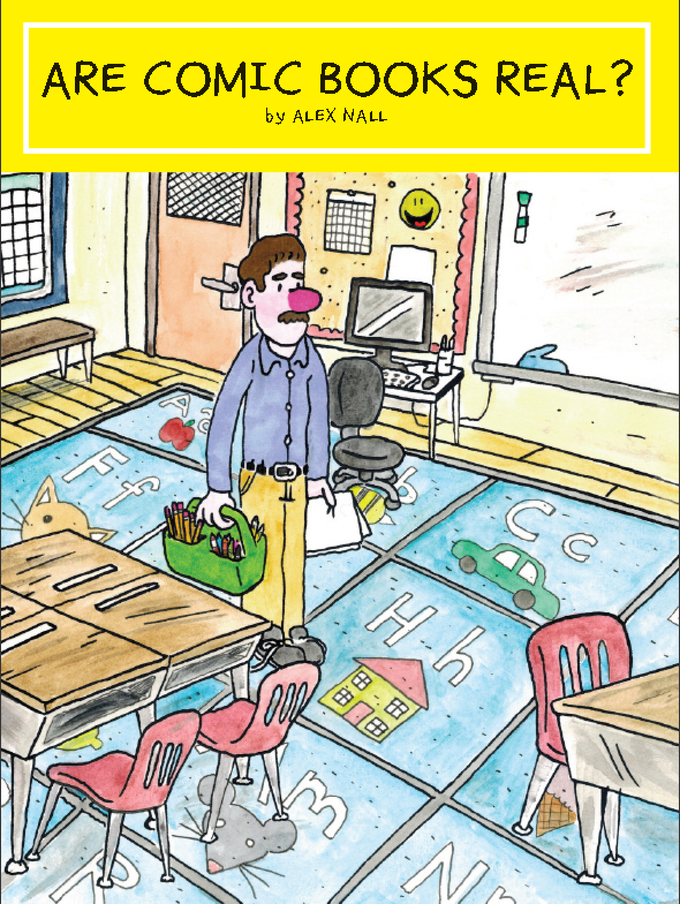
What would you say is the ethos of Kilgore Books? Are there particular types of books you look to publish?
As I mentioned above, we strive to be a stepping stone for artists. Additionally, we try to be a very artist-friendly place to publish. We split royalties down the middle with folks, we don’t hold on to or ask for any rights beyond publishing the books we’re publishing. When we’re tabling a show, any Kilgore person is welcome, and they can sell whatever they want at our table. In those situations, I also usually try to let the artist sell their copies of the book before we sell ours.
I don’t do a ton of editing. If I see a glaring problem, I’ll check in on it, but generally, I believe the artist has a vision and my job is to help them realize it. If they want input, I’m happy to give it, but my job is to kind of get out of the way and help it happen. Then if there are issues/problems, hopefully the artist can learn from them and improve for the next time.
Basically, we try to take as much of the headache away from getting books out into the world for the artists.
Beyond that, we typically publish humor, literary, or memoir based books. We care most about stories, and how the artist is able to use the medium of comics to tell the story in a way that it couldn’t be told as just a short story, poem, or novel.
Secondly, we look for artists who are willing to be a part of the indie comics community, as opposed to it being a vanity project or side hustle to their other creative endeavors. When it’s the latter, I sell 25 copies and my garage fills up with great comics nobody will ever read.
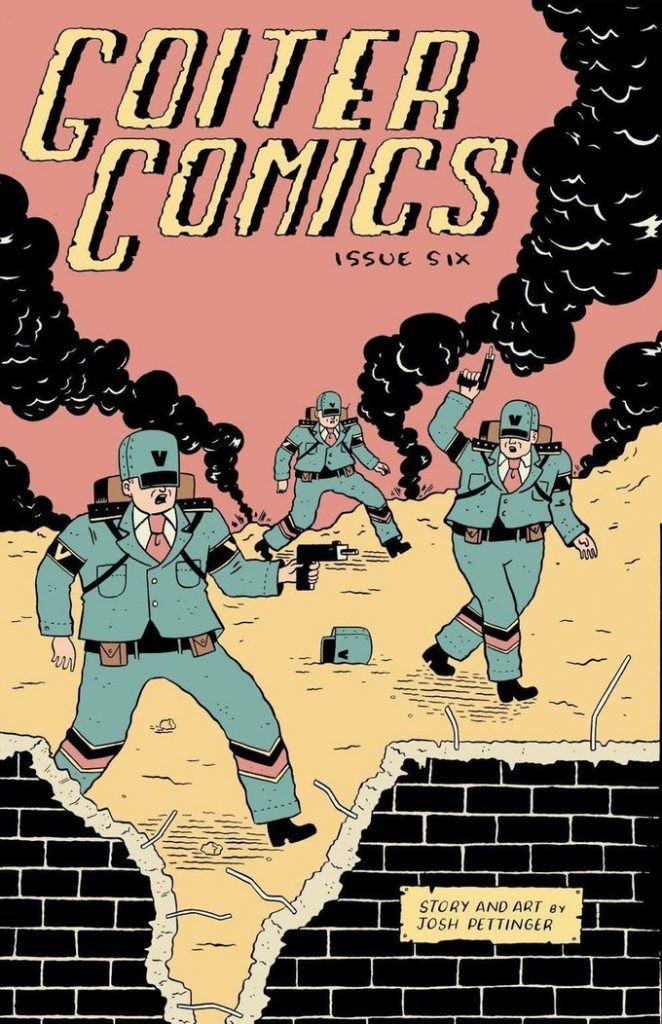
What is it like working on a major project like trying to launch and run your latest Kickstarter during the COVID-19 pandemic? Has anything changed about your process or your planning?
It’s fine, and if anything it feels a little like getting “back to normal,” which is great (and terrifying). Most of the stuff I’ve learned has come from previous Kickstarter campaigns and just publishing for twelve years. I’ve scaled back on the bells and whistles – screenprinting shirts always wiped me out for campaigns, and I’ve waited until all the books were done and ready to go. I’ve got all the files for the books, I’ve signed the contracts, and we’re ready to go. That means every reward should be fulfilled on time, which is great. Knock on wood.
I should add that, having missed out on conventions for a year, and laying low on publishing, I’ve just MISSED everybody. I’ve missed talking to artists, I’ve missed engaging with customers, and as we’ve launched this new drive I am DELIGHTED to be having these conversations again. I’m reminded of what I love about small press comics. It’s personal, it’s friendly, it assumes the best.
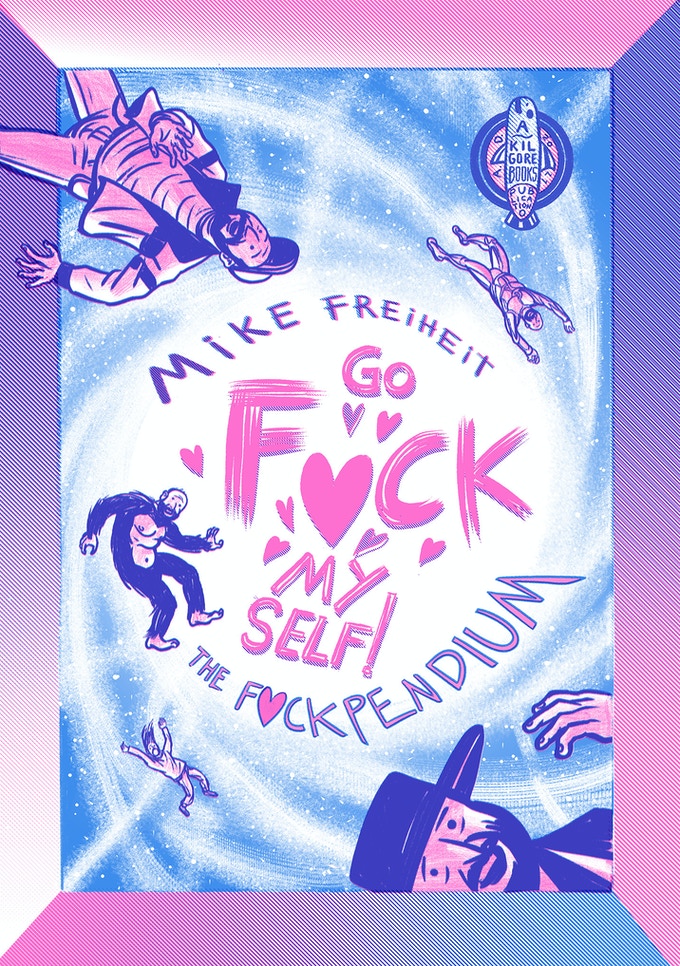
What do you think the world of small press comics looks like when this pandemic is all said and done? What role do you think small presses like yours have in the aftermath of all of this?
I think I talked about that above, but instead of having yet another question of how we can get mainstream shops to carry us or get better sales at conventions, maybe we just go around that. Again, Kickstarter is the only reason Kilgore still exists. When we had the bricks and mortar shop, the publishing could go into the red, because shop sales would make up for it. Once we decoupled, I had to figure out how to get money up front. So, I tried a PRE-SALE. I pre-sold five comic books. So, I went with Kickstarter, and bam, got the whole shebang funded. Each of our funding campaigns has been better and better. It makes sure artists get some money, makes sure I don’t go into debt, and moves thousands of comic books. From our 2018 campaign, I’ve already sold out of three of the nine books we published, because there’s a buzz around the books when they do come out.
Now, the big issue is conventions. For me, the conventions are more like trade shows. I never make any real money on a show, and generally am happy if I cover costs. But I do find artists, I get to spend time talking to comics journalists, and I get to BS with other publishers. I can find distribution in new places, and find new shops to get into. I’d love to see a convention that wasn’t focused on outward readership, but rather on the internal mechanics of the thing. Artists, publishers, distributors, shops, crowdfunders — like, all of it. Fans/readers are welcome, but the focus is on improving the mechanism of how we do this thing. All the stuff that happens around the edges of an event like SPX can be moved to the center of it.
I literally just came up with that while I was writing it, but I think it’s a good idea.
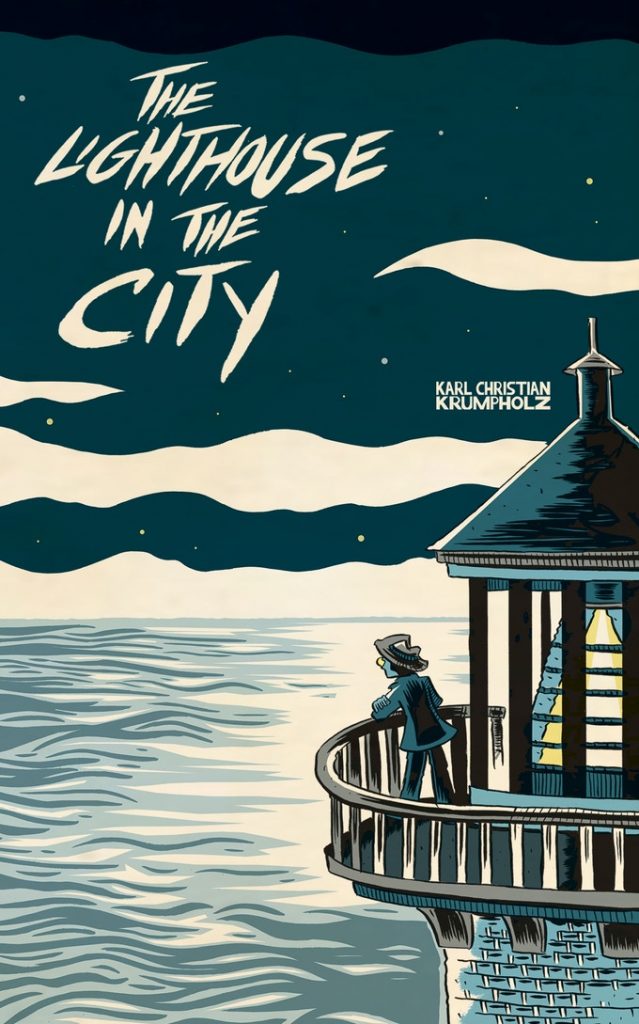
How do you all find the people you work with? Do you offer mentoring or other services to those people?
For the most part, we find people at shows. I walk around at shows and pick up minis that look cool, and then see if people want to work together. That, to me, is the great problem of the pandemic, the loss of community. Some people submit stuff, but the submissions are often just a 1-2 line email, “hey can you publish my book,” which isn’t very enticing. When I was better about putting out the Kilgore Quarterly, I’d find artists there, through their short-form submissions. For a few years, Noah would turn me on to stuff. Mostly it’s at shows though. One funny story was that after I read Nick Drnaso’s “The Grassy Knoll” I reached out to him (and I’m not sure how I found him, as he’s not really an ‘online’ kind of guy) and said, “hey let’s do a book together.” He very politely responded that he had already signed a contract with Drawn & Quarterly. Ha! Lucky him that Beverly didn’t come out on Kilgore!
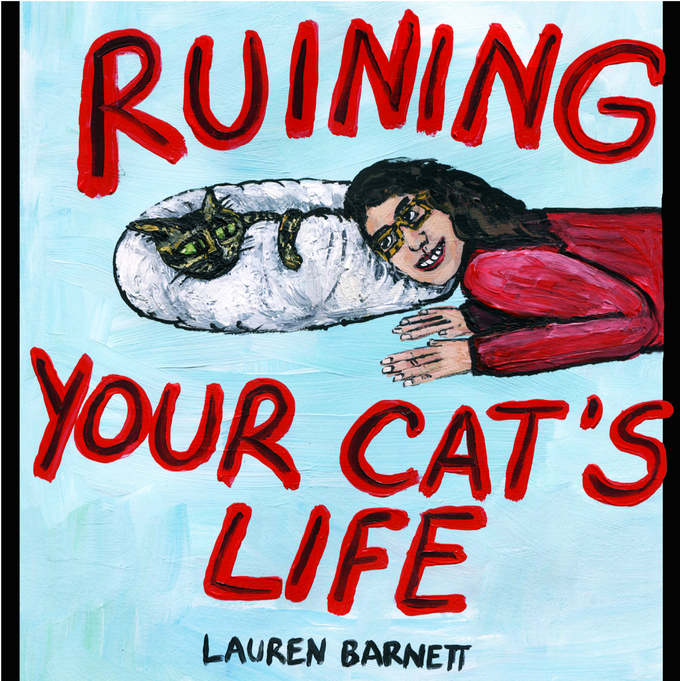
Are you considering inequities or other historical considerations (for example, working with cartoonists of color and LGBTQ+ cartoonists) as you determine your publishing slate?
Yes, of course, though I don’t think we’re great at it. Again, this is where the lack of shows has had a huge negative impact. Since most of the work we publish is created by artists we’ve met at shows, it’s been hard to find new work.
I’m trying to get out of my head on this stuff too. At my day job, I was talking to our diversity coordinator and she gave me some great advice. She said, “don’t be afraid of messing up – you’ve already messed up hundreds of times, just jump in and know you’re going to mess up again, and that you can learn from mistakes.” That was very helpful to hear, so I’m working on being less of a fragile white dude.
I remember approaching one of our artists at a show and thinking, “there’s NO WAY she’ll want to work with Kilgore! Her work is so incredible and groundbreaking and inspiring, and we’re just fuddy duddy ole Kilgore.” Of course, I’m an idiot and she was psyched someone was into publishing her work!
So yeah, definitely that stuff is in my brain all the time, I don’t think I’m great at it, I’d like to get better, and I welcome any and all feedback on it.
Thanks so much for your time and your words. Any last thoughts you’d like to leave with?
Yeah, sheesh, I haven’t had the chance to ‘chat about comics’ in so long, I’m worried I just bored the hell out of anyone reading this. A lot of my above comments are contradictory, and I am aware of that. But that’s part of being human, right?
Last thoughts?
You asked if Kilgore had an ethos or anything. I’d say it’s to be kind to everybody. There’s plenty of things to be upset about in this world, so much horror and pain. I have to think that if I can be kind and loving to a small group of artists, and the fans of their work, then maybe we can nudge the darkness over a little. If I can offer dignity and respect to every person I encounter then I’m doing a good job at whatever the hell this thing is.
Oh, and if you’re so inclined, please support our Kickstarter: https://www.kickstarter.com/projects/kilgorebooks/kilgore-books-and-comics-2021-releases?ref=hay6hv
SOLRAD is made possible by the generous donations of readers like you. Support our Patreon campaign, or make a tax-deductible donation to our publisher, Fieldmouse Press, today.

Leave a Reply